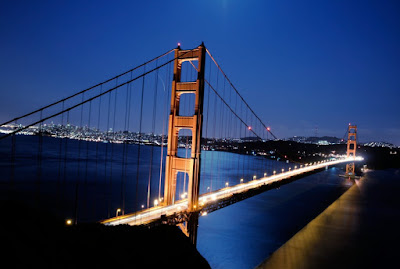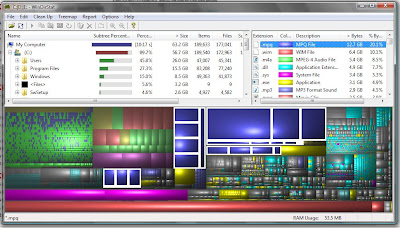Here's an interesting article from the Journal of Analytical Toxicology, October 2003. Yeah, its almost five years old but still good.
How crazy is it that you can have nearly double the amount of caffeine in your coffee and not really know it? I can sometimes feel jittery from one small cup of drip coffee, but the next day not even feel motivated with a quad americano... And decaffeinated coffee still has caffeine... That should fall under false advertising.Caffeine levels differ among coffee brands
Scientists at the University of Florida College of Medicine recently analyzed 16-ounce servings of caffeinated coffee from specialty shops. They found almost twice as much caffeine in the strongest brew--Starbucks regular, at 259 milligrams (rag.), compared with the weakest, Dunkin' Donuts regular, at 143 mg.
Another type of Starbucks caffeinated coffee purchased from a single Gainesville store for several consecutive days varied even more, from 259 mg. to a whopping 564 mg., almost as much caffeine as three maximum-strength NoDoz[R], said Bruce Goldberger, an associate professor and director of toxicology in the University's Department of Pathology, Immunology, and Laboratory Medicine and associate professor in the Department of Psychiatry, Division of Addiction Medicine.
Related Results
Caffeine may impact...
Cutting caffeine may...
Caffeine May Block...
Fans in withdrawal...
Van Gogh Vodka Marries...
Although some people think that they are bypassing the stimulant, seven decaffeinated coffees from various shops all contained some caffeine, although less than 18 mg. per 16-ounce serving.
"I don't think people really know that there is a wide range in (coffee's) caffeine content," said Dr. Goldberger. "Our experience with specialty coffee is that it is not consistent."
Coffee drinkers might have to live with uncertainty, an important consideration for those who monitor their caffeine consumption, he said.
Caffeine can enhance human performance by increasing alertness and by speeding reaction time, but it can increase the heart rate, blood pressure, and anxiety, according to previous research cited in the study.The caffeine content of Starbucks coffee varies, according to a written statement provided by Lara Wyss in Seattle in response to a request for comment on the study.The statement read in part:
"We emphasize that any absolute numbers reported on caffeine levels in Starbucks coffee do not reflect what a customer would receive in every cup of Starbucks coffee. There are many variables that contribute to caffeine content from cup to cup," including the type of bean, roasting and brewing methods, and grind.
Starbucks regular drip coffees contain an average of 200 mg. of caffeine per eight-ounce serving; the decaffeinated drip coffees contain an average of 5 to 11 mg. of caffeine per eight-ounce serving.
Caffeine is a stimulant that naturally occurs in more than 60 plants, including coffee, according to the International Food Information Council Foundation in Washington, D.C. The average American consumes about 200 mg. of caffeine a day, mainly from coffee. An eight-ounce cup of drip-brewed coffee typically contains 85 mg. of caffeine.
Although caffeine is recognized as an addictive substance, the investigators do not usually encounter patients seeking help for caffeine dependence, said Dr. Mark S. Gold, a professor and chief of addiction medicine in the Department of Psychiatry, University of Florida.
"Caffeine dependence is a non-issue for me because people won't leave their home for it, won't mortgage their house for it," he said.
He conducted the study in two phases. The first phase included a one-time purchase of 14 caffeinated brewed coffees from six retailers in Bethesda and Severna Park, Maryland, including Starbucks, Dunkin' Donuts, Big Bean, Hampden Cafe, Royal Farms, and Einstein Brothers. Six espressos and seven decaffeinated brewed coffees were also purchased. Caffeine was isolated from the coffee and was then measured by gas chromatography.
The espressos ranged in size from 40 to 170 milliliters (ml.) and contained 58 to 185 mg. of caffeine. The larger servings contained more caffeine.
All of the decaffeinated coffees contained less than 18 mg. of caffeine per 16-ounce serving. The U.S. Food and Drug Administration does not require decaffeinated coffee to be absolutely caffeine-free.
The second phase used 16-ounce cups of Starbucks' Breakfast Blend, a mix of Latin American coffees, purchased on six consecutive days from a single Gainesville store. Results for the six days were, in order: 564 mg., 498 mg., 259 mg., 303 mg., 300 mg., and 307 mg.
The study results demonstrated the need for retailers to inform consumers of the caffeine content in ready-to-drink coffee because many of the beverages contain a high amount, said Michael F. Jacobson, executive director of the Center for Science in the Public Interest in Washington, D.C.
"Until now the focus has been on coffee packages, but this study indicates the need to have caffeine-content information at coffee shops as well," he said.
(Source: Journal of Analytical Toxicology, October 2003.)
Crazy, crazy, crazy...

